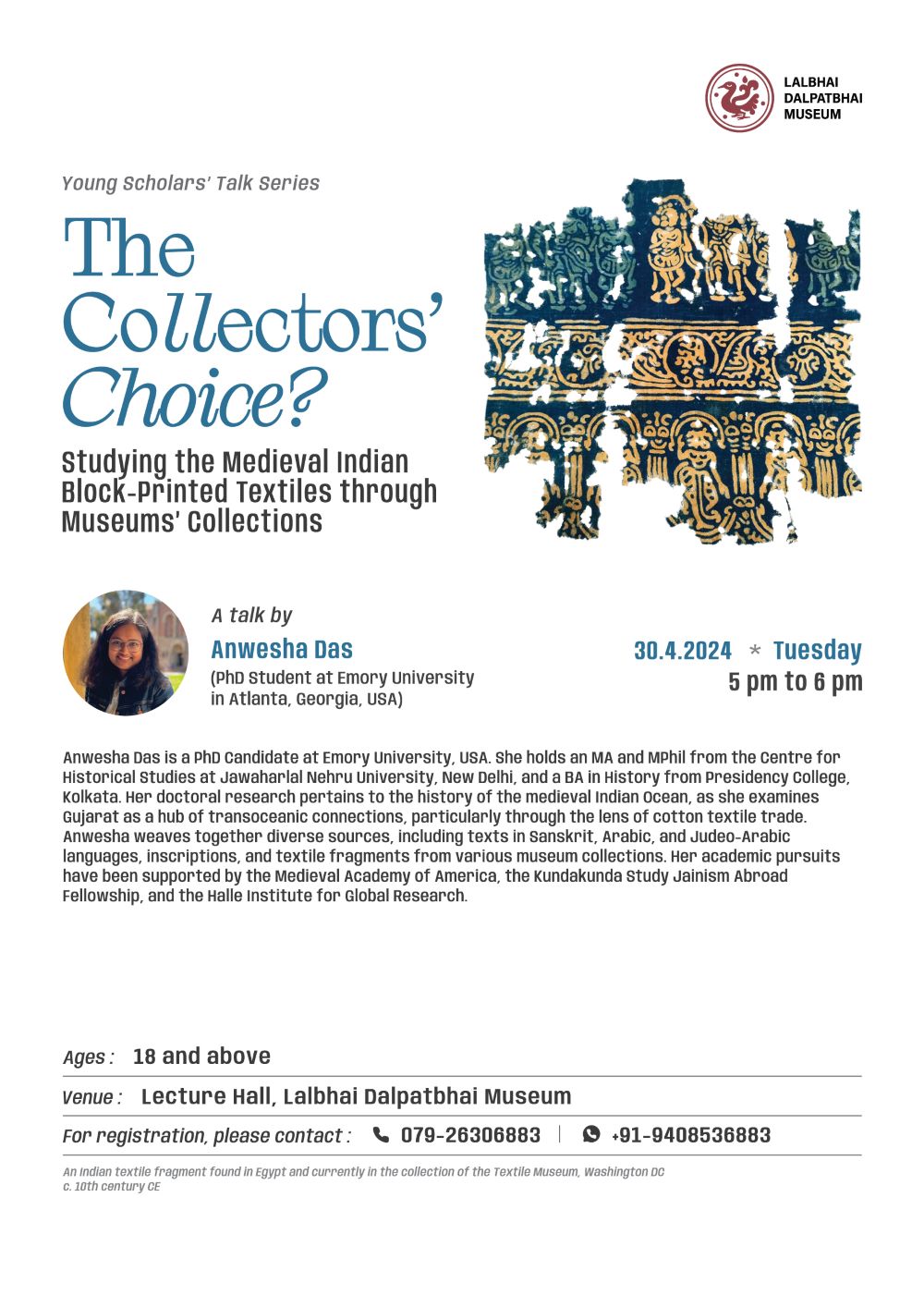
In June 1930, the American collector and founder of the Textile Museum in Washington DC, George Myers wrote to PJ Tano, an antique dealer in Cairo, expressing his desire to buy dyed cotton textile fragments. There were other collectors eager to buy some of these textiles, such as Percy Newberry and AB Benaki. These cotton textile fragments are now part of different museum collections around the world, such as the Textile Museum, Washington DC, the Ashmolean Museum, UK, Kelsey Museum, USA, Benaki Museum, Greece, and Calico Museum, Ahmedabad. This presentation traces the biographies – the lives and after-lives – of these textiles as commodities produced in medieval Gujarat and traded across the medieval western Indian Ocean, their recovery as scraps of cloths from sites in Egypt, their appearance in the early 20th century art markets of Cairo and finally as objects on display in museums.
Date: 30 April, 2024 (Tuesday)
Time: 5 pm to 6 pm
Venue: Lecture Hall, Lalbhai Dalpatbhai Museum
Ages: 18 and above
For registration, please contact:
Call: 079-26306883 | WhatsApp: +91-9408536883
Anwesha Das is a PhD Candidate at Emory University, USA. She holds an MA and MPhil from the Centre for Historical Studies at Jawaharlal Nehru University, New Delhi, and a BA in History from Presidency College, Kolkata. Her doctoral research pertains to the history of the medieval Indian Ocean, as she examines Gujarat as a hub of transoceanic connections, particularly through the lens of cotton textile trade. Anwesha weaves together diverse sources, including texts in Sanskrit, Arabic, and Judeo-Arabic languages, inscriptions, and textile fragments from various museum collections. Her academic pursuits have been supported by the Medieval Academy of America, the Kundakunda Study Jainism Abroad Fellowship, and the Halle Institute for Global Research.